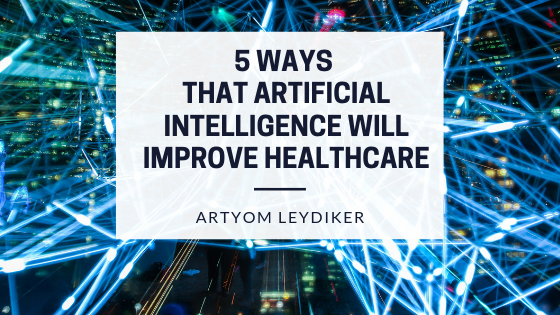Experts that study technology and the healthcare industry are seeing the early signs of a massive revolution. This revolution is the introduction of artificial intelligence (AI) into the healthcare sector. While the technology currently driving AI is still in its infancy, it is making huge leaps and strides every year. AI is already being used to create healthcare products, however, it is thought that it will totally control the entire industry in just a few decades.
Understaffing
Hospitals and clinics around the world share a common problem. This problem is understaffing. It is typically caused by budget shortages or a shortage of properly trained professionals. AI-driven applications could easily solve this issue by independently undertaking radiology tasks, diagnosing patients through computer systems, and providing accurate digital consultations. Less healthcare staff shortages are a direct path to better medical care for everyone.
Reducing Antibiotic Resistance
One of the major problems facing the healthcare industry today is increased antibiotic resistance for certain diseases. More than a biological problem, this is a data processing problem. The limitations on current computer processing power and human intelligence inhibit new antibiotics from being created. AI-driven supercomputers could process unfathomable amounts to crack the code on new antibiotic variations that diseases are not resistance to.
Improved Immunotherapy For Cancer
For anyone unfamiliar with immunotherapy, is the process of using the body’s immune system to fight off certain types of cancer. AI could greatly help in improving immunotherapy treatments by conducting highly complex DNA analysis on patients and producing an exact match immunotherapy treatment that is perfectly suited for the individual patient’s genetic makeup.
Wearable AI
In less than a decade most healthcare patients will have wearable monitoring devices driven by AI diagnostic systems. This AI will not only be able to monitor vitals and diagnose health problems, but it will also be able to make lifestyle, dietary, and general health based suggestions.
Improved Clinical Decision Making
In the future, a board of doctors, surgeons, and other healthcare professionals will no longer sit around a table in order to come to a decision on a pressing matter. Instead, AI-powered by supercomputers will propose cutting edge solutions on its own, some of which could be unique treatments never used before. Committees and healthcare boards will then be charged with approving AI proposals, rather than coming up with solutions themselves.
